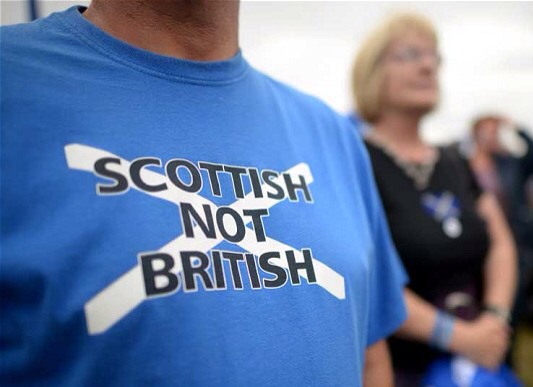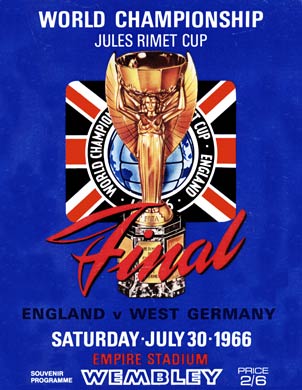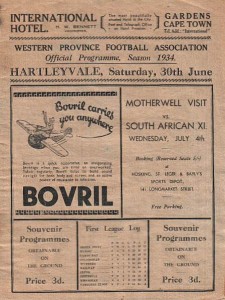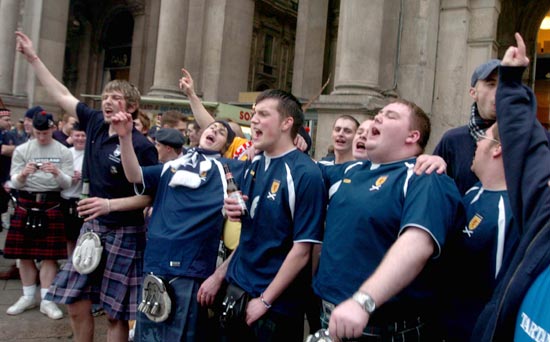
With the Scottish independence referendum a week away, Stefan Szymanski of the University of Michigan is thinking about what the outcome might mean for football.
Writing on the Soccernomics blog, he reminds us that the UK is the only nation-state with four members in FIFA and points to a historically tense relationship between the world body and the founders of the modern game.
According to Szymanski, “a vote for independence would change things.” FIFA might gain control of IFAB (responsible for the rules of the game); Welsh nationalism could receive a boost; and perhaps other football nations would call more loudly for the UK to field a single team, as it does in the Olympics.
Meanwhile in Scotland, the New York Times reports that “the country’s stadiums have become key battlegrounds for the yes and no campaigns.”
Tag: Scotland
 Author, scholar, and journalist David Goldblatt is probably best known for his sacred text of football studies: The Ball is Round: A Global History of Soccer. On Thursday, March 15 (The Ides of March!), Goldblatt shared work from his new project — a sort of mini-Ball is Round book on the cultural politics of football in Britain after 1989.
Author, scholar, and journalist David Goldblatt is probably best known for his sacred text of football studies: The Ball is Round: A Global History of Soccer. On Thursday, March 15 (The Ides of March!), Goldblatt shared work from his new project — a sort of mini-Ball is Round book on the cultural politics of football in Britain after 1989.
In an engaging public talk at the Department of History at Michigan State University, Goldblatt used the upcoming European Championships in Poland/Ukraine and the London Olympics, to explore the changing relationship between football, Britishness, and Englishness in the age of devolution.
The spontaneous popular theater of the Euros, he argues, carves out an arena for England’s traveling fans to declare their “Englishness.” Fans’ rejection of the Union Jack in favor of the flag of St. George and their performance of particular national songs are cases in point. In the case of the 2012 Olympics, Goldblatt notes that there will be no “England” in the tournament because the International Olympic Committee, unlike FIFA, deals only with sovereign states. (Britain has four members in FIFA: England, Scotland, Wales, and Northern Ireland.) The formation of the British Olympic football team thus becomes very contentious in a postdevolution context, with only England firmly supporting it. A striking contemporary example of football’s singular significance for popular national identity.
Listen to Goldblatt’s talk here.
Playing a Fine Motherwell…Again

Motherwell, the Scottish Football Club who introduced a sophisticated passing game and a collective team approach to spectators in South Africa, are once again at the forefront of the game’s development. This time Motherwell are showing how to tackle the hooligans that hang out in far too many board rooms.
According to a report by Gavin McCafferty in today’s “Scotsman“, Motherwell plan to bring two fans on to their board as a first step towards the aim of making the club owned wholly by supporters. There will be a £300 one-off fee, with a voluntarily annual fee of £50 thereafter to retain benefits. More wealthy supporters and businesses can pay up to £25,000 to join, with added benefits, but each member will have one vote. The members will vote representatives on to the club’s board, initially two, but chief executive Leeann Dempster yesterday revealed the end game was full ownership and total democracy in running the Lanarkshire club.
About 300 fans turned up at an open meeting on Monday and Dempster was encouraged by the general feedback from supporters. “They can contribute to the financial security of the club,” Dempster said. “This is the first time they have the opportunity to be properly involved. I think that’s what excites people the most – the thought of being able to nominate or be nominated to be on the board. Two members of the society will be on the board. They will enact the wants of the other members. “We want to get to a stage where that will develop further and more members will come on to the board. Hopefully to a point where, once it’s clear that the model is working, we can transition full ownership of the club over to the society. You can’t go from a model of having one benefactor on the board to the next day having supporters running the club. That would cause enormous problems. So we’re not naive enough to think you can just do that and forget about it.”
When Scotland Win the World Cup

Great World Cups are often remembered as much for what happens off the pitch as what happens on the pitch. The pageantry and passion of supporters can be as memorable as the skill and performances of players.
Scottish qualification would go a long way to ensuring a successful South Africa 2010.
Recalcitrant Scottish tribes pumping through the arteries of Pretoria, their bestial roars still powerful enough to send shivers down the spines of long dead Roman Legionnaires. (Note to the BBC, CNN, AP and Reuters: Europe has tribes too.) The Free State Stadium in Bloemfontein booming to the tune of Scotland the Brave.